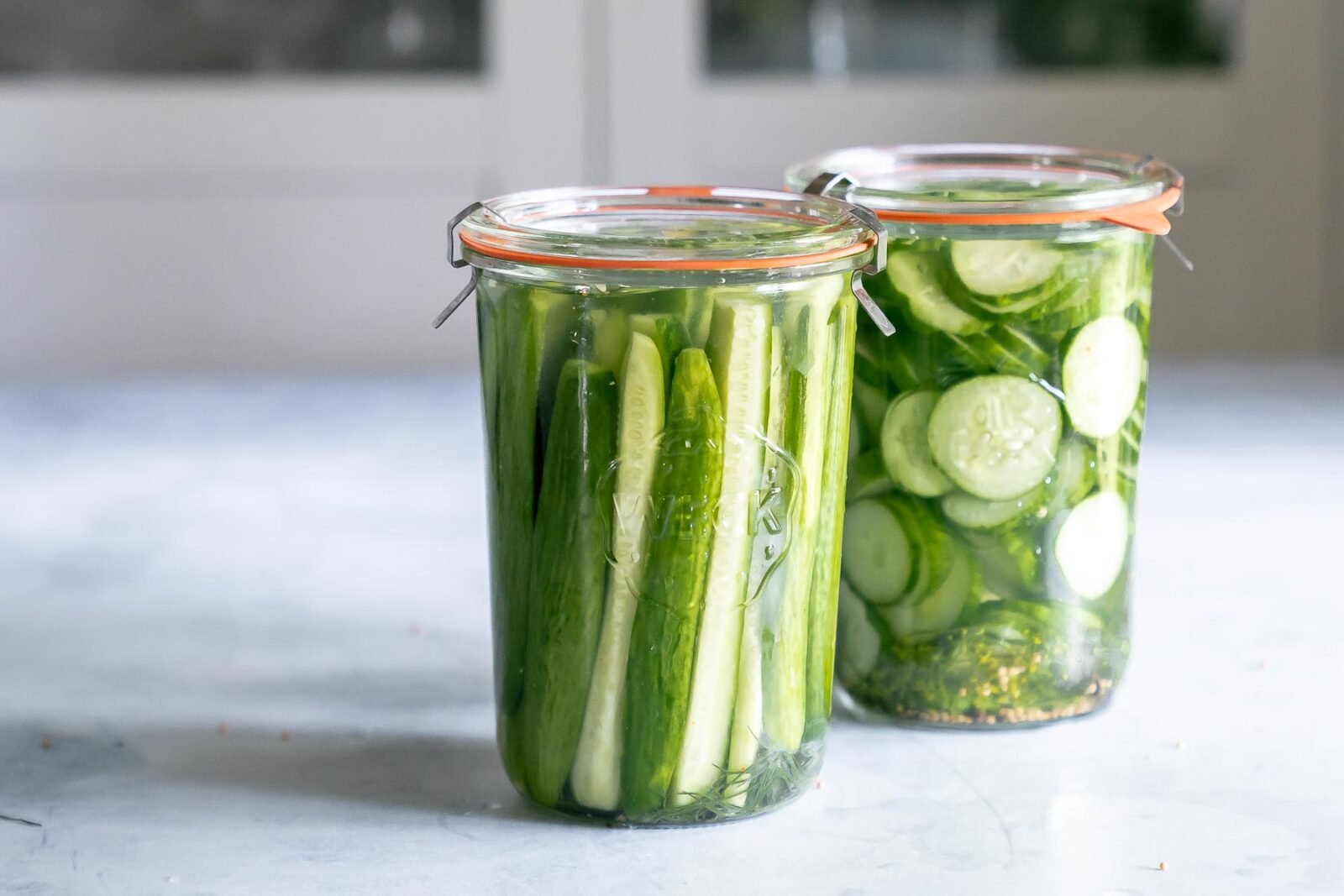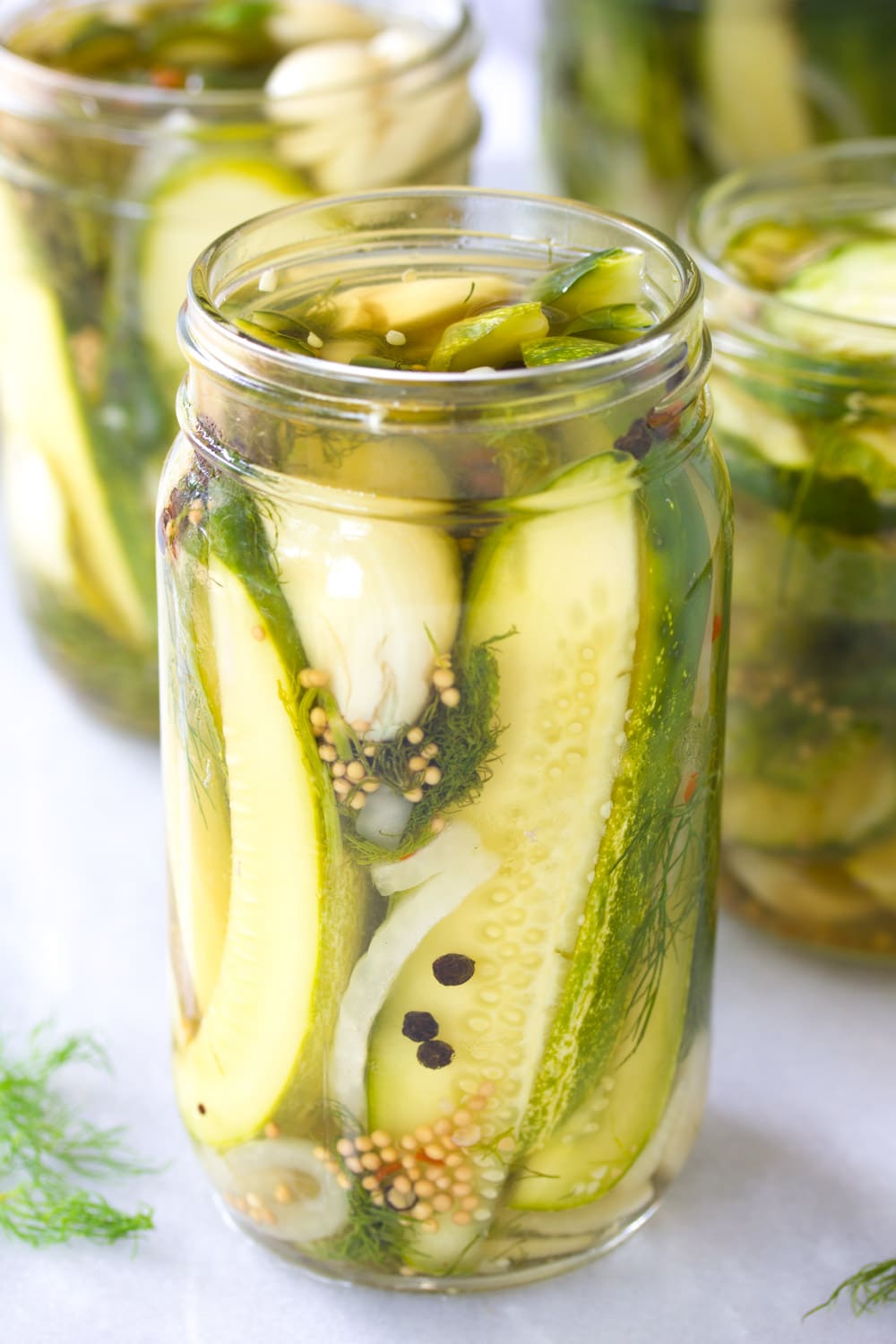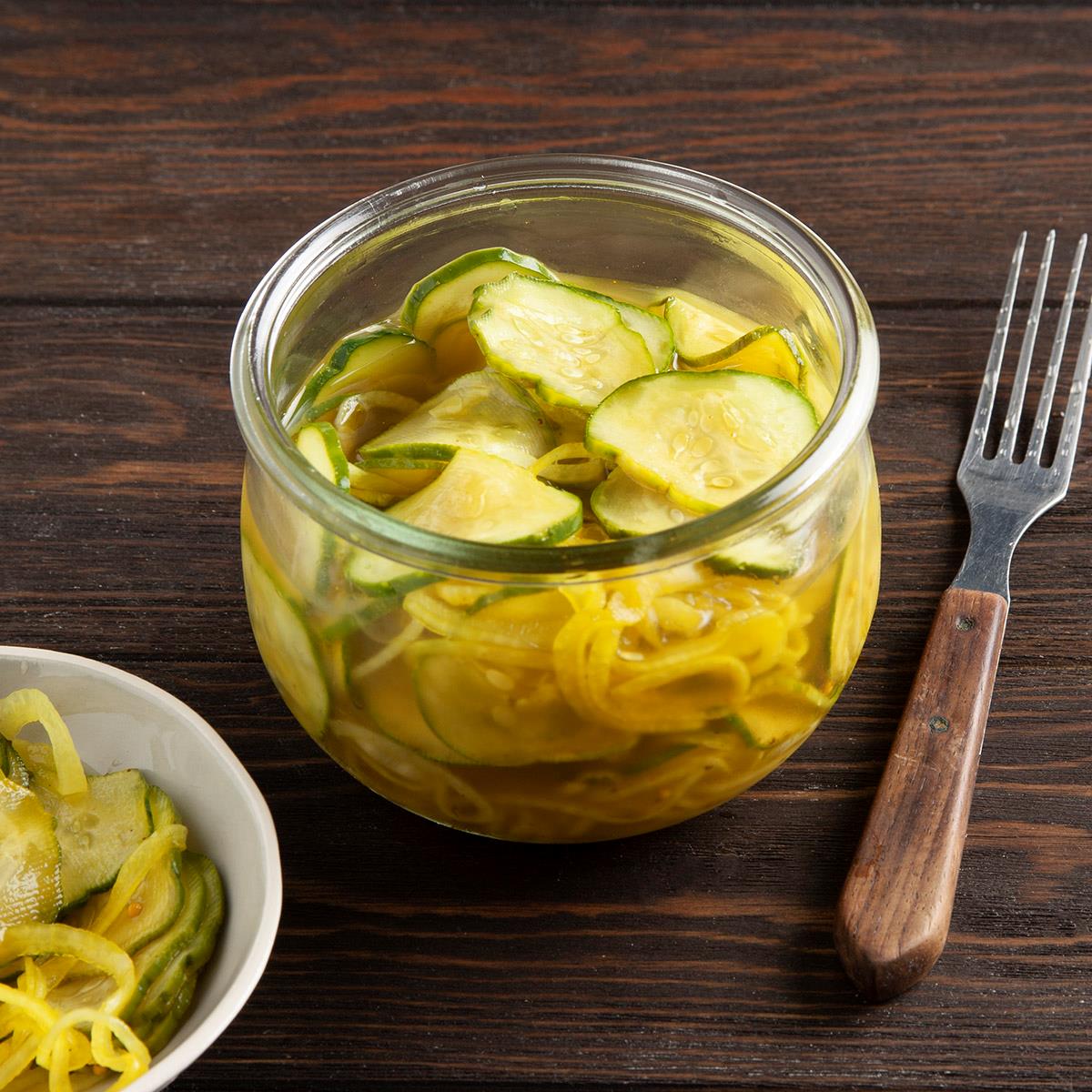
Quick & Easy Refrigerator Pickles

Refrigerator pickles are quick and easy to make — no sterilizing jars or special equipment required.
Yield: About 24 spears, or two 1-quart jars
Nutrition Facts: servingSize , calories , Fat , Carbohydrate , Protein , Saturated Fat , unSaturated Fat , Sugar , Fiber , Sodium , Cholesterol
Ingredients:
- 1¼ cups distilled white vinegar (5% acidity)
- 3 tablespoons kosher salt
- 2 tablespoons sugar
- 2 cups cold water
- 1¾ to 2 pounds Kirby cucumbers (about 6), cut into halves or spears
- 2 tablespoons coriander seeds
- 6 large garlic cloves, peeled and halved
- 1 teaspoon mustard seeds
- ¼ teaspoon red pepper flakes
- 16 dill sprigs
Instruction:
- Combine the vinegar, salt and sugar in a small non-reactive saucepan (such as stainless steel, glass, ceramic or teflon) over high heat. Whisk until the salt and sugar are dissolved. Transfer the liquid into a bowl and whisk in the cold water. Refrigerate brine until ready to use.
- Stuff the cucumbers into two clean 1-quart jars. Add the coriander seeds, garlic cloves, mustard seeds, red pepper flakes, dill sprigs, and chilled brine into jars, dividing evenly. If necessary, add a bit of cold water to the jars until the brine covers the cucumbers. Cover and refrigerate about 24 hours, then serve. The pickles will keep in the refrigerator for up to one month.
Best Homemade Refrigerator Pickles

Best Homemade Refrigerator Pickles Recipe: How to make pickles, no canning required! These perky crisp pickles make great sandwich toppers.
Prep: 5min
Total: 1448min
Yield: 12
Serving Size: 1 spear
Nutrition Facts: servingSize 1 spear, calories 13 kcal, Carbohydrate 2 g, Sodium 293 mg, Sugar 1 g
Ingredients:
- 3 pickling cucumbers, (each about 4 inches in length, sliced evenly)
- 1/4 cup Vidalia onion, (sliced)
- 3-5 sprigs fresh dill weed
- 1/2 cup apple cider vinegar
- 1/2 cup water
- 2 cloves garlic, (smashed)
- 1 1/2 teaspoons pickling salt, (or kosher salt)
- 1/4 teaspoon granulated sugar
- 1/4 teaspoon whole black peppercorns
- 1/4 teaspoon whole yellow mustard seeds
- Pinch crushed red pepper flakes
Instruction:
- Pack a clean pint-sized jar with sliced cucumbers, onion slices, and dill sprigs. Leave a 1/2 inch of space at the top of the jar for liquid.
- In a small pot heat the vinegar, water, garlic, and all spices until the mixture comes to a simmer and salt and sugar dissolve.
- Cool the brine down to warm and fill the jar so everything is covered with brine.
- Close the lid tightly and refrigerate for 24 hours before eating.
Easy Refrigerator Pickles

This easy refrigerator pickles recipe is a great way to use cucumbers and onions from the garden. Here in upstate New York, we have an abundance of cucumbers. —Catherine Seibold, Elma, New York
Prep: 20min
Total: 20min
Yield: 6 cups.
Nutrition Facts: calories 35 calories, Fat 0 fat (0 saturated fat), Cholesterol 0 cholesterol, Sodium 175mg sodium, Carbohydrate 8g carbohydrate (7g sugars, Fiber 0 fiber), Protein 0 protein.
Ingredients:
- 6 cups thinly sliced cucumbers
- 2 cups thinly sliced onions
- 1-1/2 cups sugar
- 1-1/2 cups cider vinegar
- 1/2 teaspoon salt
- 1/2 teaspoon mustard seed
- 1/2 teaspoon celery seed
- 1/2 teaspoon ground turmeric
- 1/2 teaspoon ground cloves
Instruction:
Place cucumbers and onions in a large bowl; set aside. Combine remaining ingredients in a saucepan; bring to a boil. Cook and stir just until the sugar is dissolved. Pour over cucumber mixture; cool. Cover tightly and refrigerate for at least 24 hours before serving.
Easy Overnight Refrigerator Pickles
FAQ
How long will homemade refrigerator pickles last?
What is the difference between canning pickles and refrigerator pickles?
What makes refrigerator pickles crisp?
Do you have to water-bath refrigerator pickles?
How long does it take for refrigerator pickles to be ready to eat?
Should brine be hot or cold for refrigerator pickles?
